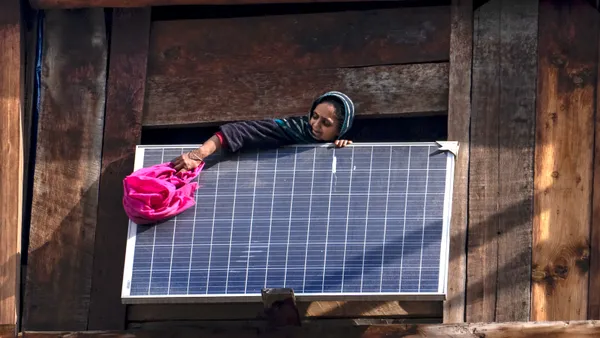The Senate on Monday confirmed Liberty Energy Chairman and CEO Chris Wright to be secretary of the U.S. Department of Energy on a 59-38 vote.
The action follows the confirmations of Doug Burgum to be Interior Department secretary on Thursday and Lee Zeldin to be the Environmental Protection Agency’s administrator on Wednesday.
DOE, Interior and the EPA will play key roles affecting the power sector at a time when electric demand forecasts have jumped — partly on data center development — and growing electricity bills are sparking concerns among state utility regulators and consumer advocates.
During his confirmation hearing last month, Wright told the Senate Energy and Natural Resources Committee as DOE secretary, he would try to increase U.S. power supplies to help lower electricity prices.
“The only way you can drive down the price of a critical commodity is to grow the supply, so there’s going to be many different avenues to pursue this,” Wright said during his confirmation hearing. “I’m 100% committed to growing our electricity grid and our energy production and removing those barriers that are standing in the way.”
Wright said he would like the United States to grow all sources of “affordable, reliable … pure energy,” including renewable energy.
Wright said as head of DOE he would have three immediate priorities: expanding energy production and cutting energy costs, accelerating the work of DOE’s national laboratories and building energy infrastructure.
Under Wright, DOE could eliminate its Grid Deployment Office and revamp its priorities for the its Loan Programs Office, according to experts.
Wright has worked in the oil and gas sector since 1992. Liberty Energy, a publicly traded oil and gas services company based in Denver, is an investor in Fervo Energy, an enhanced geothermal company; Natron Energy, which makes sodium-ion batteries; and Oklo, a small modular reactor company.
After the Senate confirmations of Wright, Burgum and Zeldin, the Electric Power Supply Association, which represents independent power producers, said competitive electricity markets could help shield consumers and taxpayers from investment risks during a period of rising electric demand.
“We look forward to working with new leadership at these critical agencies to realize the potential of electric competition and advance policies that prioritize reliability, affordability, and market efficiency to secure our nation’s energy future,” EPSA President and CEO Todd Snitchler said in a statement.












